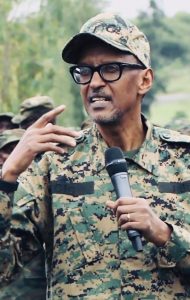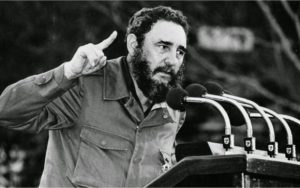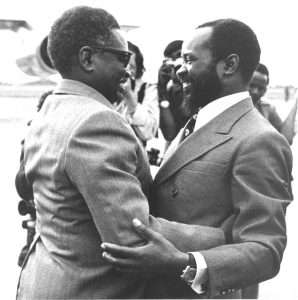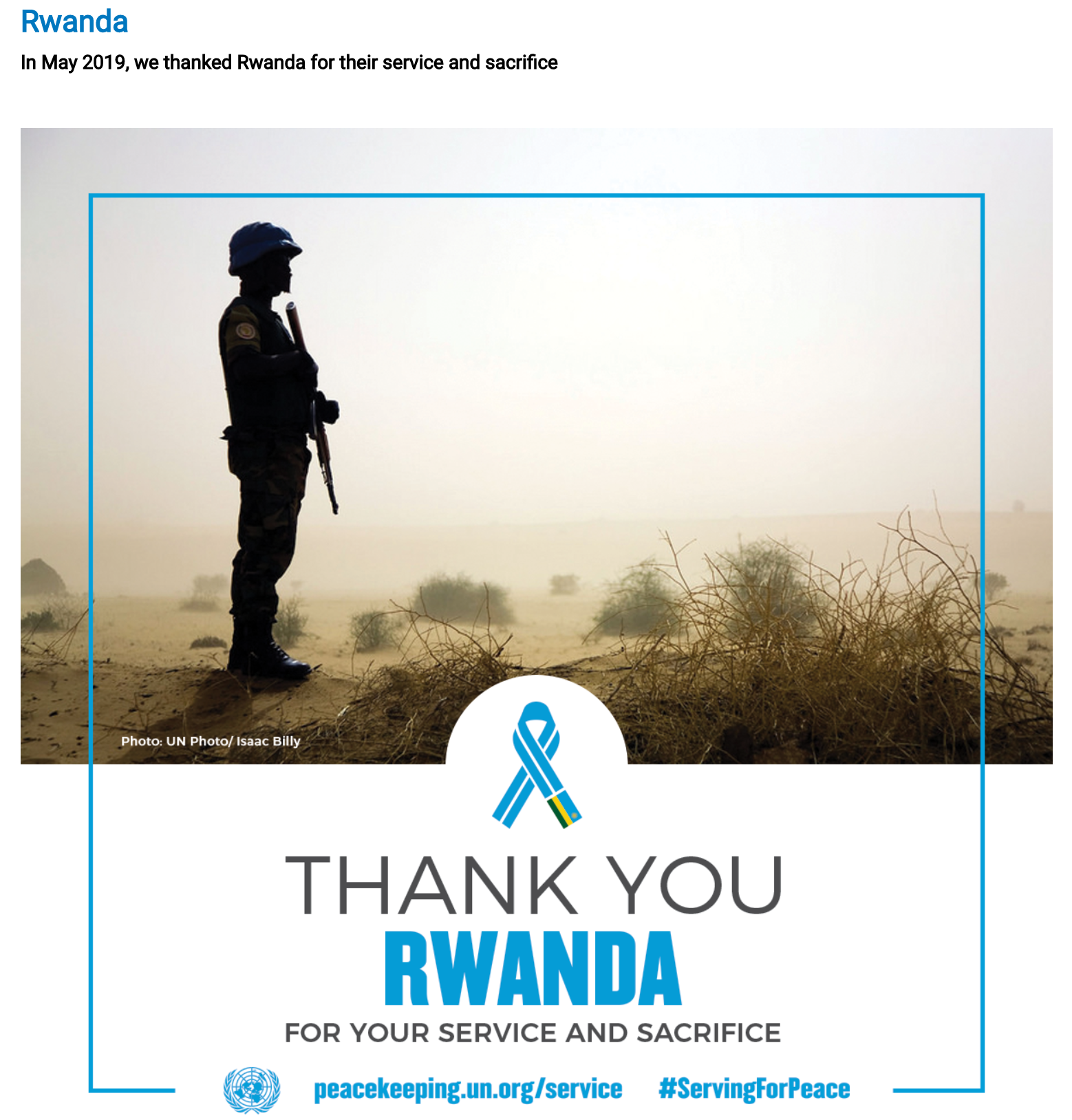When you name vital global principles after your capital city, you have got to have the will and the means to enforce those principles.
Two global principles are named after Rwanda’s capital city, Kigali, namely:
- The Kigali Principles on the Protection of Civilians in UN peacekeeping;
- The Kigali Amendment to the Montreal Protocol on the substances that deplete the Ozone layer.
There are possibly no greater global initiatives achieved in the last quarter of a century than these two. In essence they are complementary. One is on the protection of mankind, but how effective would that be if mother earth, their habitat, is being threatened?
Kigali Principles stem from another principle, the “Responsibility to Protect” – “known as R2P – an international norm that seeks to ensure that the international community ‘never again’ fails to halt the mass atrocity crimes of genocide, war crimes, ethnic cleansing and crimes against humanity. The concept emerged in response to the failure of the international community to adequately respond to mass atrocities committed in Rwanda and the former Yugoslavia during the 1990s. The Responsibility to Protect was unanimously adopted in 2005 at the UN World Summit, the largest gathering of Heads of State and Government in history.”
But as Alfred Adler once said, “It is easier to fight for one’s principles than to live up to them.”
When Kigali Principles were being adopted, nations were reticent to commit to being bound by them, for they knew the price in human life, to be paid in the protection of fellow humans. So they asked for Kigali Principles to be non-binding. Many were not animated by the same vision as Rwanda and did not come from the same history as its people.
 For the Rwandan Army, saving civilians whose lives are in danger, is at the core of its very existence, in the words of a Rwandan elder, “We cannot turn the clock back, nor can we undo the harm caused, but we have the power to determine the future and to ensure that what happened, never happens again.”
For the Rwandan Army, saving civilians whose lives are in danger, is at the core of its very existence, in the words of a Rwandan elder, “We cannot turn the clock back, nor can we undo the harm caused, but we have the power to determine the future and to ensure that what happened, never happens again.”
And indeed that elder is the commander in chief of the Rwandan army, who commanded them as they risked their lives to stop the genocide against the Tutsi, and in his own words, “we are still the same people who are ready to go in trenches, to fight for the truth, for human rights and human dignity”.
Those listening to him thought he was talking about preventing the recurrence of Genocide in Rwanda. But that is because they do not know the meaning of Rwanda; an ideal of humanity that transcends its physical borders.
Growing up I had come to realize that countries with the sobriquet “Democratic” in their name, often had least of it, and political parties with “Revolutionary” in theirs, were usually the most reactionary, while those who proclaim to be ‘nations of human rights’ turned out to be its biggest violators at home and abroad. I had come to resign that, at the end of the day, conventions and principles are just aspirations on a piece of paper.
Rwandans have an ancient philosophy of ‘Igihango’ (The oath). The oath is taken with the highest regard. Oaths maybe ceremonial elsewhere, but in Rwanda it is revered, almost sacred. One may chose death over betrayal of the oath ‘Gutatira igihango’.
Historically, Rwandans in general and Rwanda warriors, whose nom-de-guerre, “Inkotanyi”, the current Rwandan Army proudly wears, were not afraid of death. The only question was, how? Serving which cause? We have taken the oath to protect fellow human beings, and defend mother earth and by God, Imana y’Urwanda, we shall fulfill it!
Rwanda is at peace now, but we believe that our peace is not complete if the peace of fellow humans is not secure. It is in that context that Rwanda rallied the world to sign the ‘Kigali principles on the responsibility to protect’. It didn’t end there, for it envisions our peace lying in the protection of Mother Earth, our cradle. So it invited the world once more to push the envelope from the ‘Montreal protocol’ and sign the ‘Kigali amendments’.
Now, when you name the protection of mankind and saving the planet after your capital city, you have got to have the will to sacrifice for it to be reality, even if that involves losing your lives. Kigali principles are such a noble cause, worth dying for, but the Rwandan Army is modern now, they don’t die…
Rwanda is currently the fourth largest contributor of troops to UN peacekeeping operations and the second largest Police contributing country.
Before the deployment in Mozambique, there were nearly 6,550 Rwandan uniformed personnel serving with the UN, the majority of them in hot spots such as South Sudan, the Darfur region of Sudan and the Central African Republic (CAR).
Over the last 15 years, more than 7,700 Rwanda Police officers have participated in peacekeeping duties across the globe, of which over 1400 of them are women. Rwanda National Police participated in restoring peace and security in Ivory Coast, Mali, Liberia, South Sudan, Haiti and Police Professional staff in the United Nations Headquarters in New York. The dream of Kwame Nkrumah of having a continental force defending African peace is being realized…
As expected, foreign reporters focused on underneath riches. I have been to Cabo Delgado, it is a magical place with endless white sand beaches and a warm and welcoming people; a people worth knowing, a people worth saving. Rwandans did not go there to save natural gas or deep water rubies. That’s where foreigners miss the point. It is they, who are obsessed with riches, Rwandans are a revolutionary, internationalist people, our army doesn’t wage war to secure natural resources, it’s philosophy is humanitarian and it’s belief, that the biggest wealth is in a human being.
 On that I recall a speech by El Commandante Fidel Castro: “Some imperialists asked themselves, why are Cubans helping Angolans? What are our interests? They are accustomed to thinking that a country does something in search of oil, diamond, copper, or other natural resources… No. our interests are not materialistic, and it is only logical that the imperialists can’t understand that. Their criteria is based solely on chauvinistic, nationalistic, egotistic reasons. We are carrying out our elementary, internationalist duty in helping the people of Angola.”
On that I recall a speech by El Commandante Fidel Castro: “Some imperialists asked themselves, why are Cubans helping Angolans? What are our interests? They are accustomed to thinking that a country does something in search of oil, diamond, copper, or other natural resources… No. our interests are not materialistic, and it is only logical that the imperialists can’t understand that. Their criteria is based solely on chauvinistic, nationalistic, egotistic reasons. We are carrying out our elementary, internationalist duty in helping the people of Angola.”
In Castro’s time, the war that needed waging, was against imperialism and colonialism. While that war persist to date, it has changed forms and needs be eviscerated mainly intellectually. The ground war required today is against terrorism.
But Rwandans will do things differently from Cubans. Our army and police will pursue a vanguard internationalist duty without exporting Marxism, or even “Rwandism”. While our ideology: “Kwanda” (Expansion) means that for a revolutionary army such as ours, the battleground against terrorism encompasses the whole world. However, our guiding principle “Agaciro” (Dignity) imposes us to have internationalist principles, that respect others’ indigenous values.
 Let’s dedicate this deployment in Mozambique to late Comrades António Agostinho Neto, and Samora Moisés Machel, who fought for Angolan and Mozambican liberations. I want to tell them that they did not fight and die in vain, that we have found among ourselves others to walk in their footsteps. That their actions still inspire us today.
Let’s dedicate this deployment in Mozambique to late Comrades António Agostinho Neto, and Samora Moisés Machel, who fought for Angolan and Mozambican liberations. I want to tell them that they did not fight and die in vain, that we have found among ourselves others to walk in their footsteps. That their actions still inspire us today.
And to the young people of Rwanda, of Mozambique and of Africa, I want to say this: We must find it within ourselves to uplift each other, to defend each other. Castro is no more, Samora is no more, but we may not wait for Cubans, this time, to come and die on African soil to save Africans. We have Castros and Samoras of our time, among us, and they must fulfill the internationalist duty of defending our continent, Africa.
 We have to write our own history. In the words of late Patrice Lumumba: “The day will come when history will speak. But it will not be the history which will be taught in Brussels, Paris, Washington or the United Nations… Africa will write its own history and in both north and south it will be a history of glory and dignity”. Yes indeed comrade Lumumba. That day is here!
We have to write our own history. In the words of late Patrice Lumumba: “The day will come when history will speak. But it will not be the history which will be taught in Brussels, Paris, Washington or the United Nations… Africa will write its own history and in both north and south it will be a history of glory and dignity”. Yes indeed comrade Lumumba. That day is here!
In walking the talk on the Kigali Amendments, plastic bags were banned in Rwanda, streets are cleaned and trees planted. Today Rwandans live in a true biosphere, with more than 30% of the country being green, with rain forests, natural parks and endangered species preserved and protected.
Last week when I helped a client secure a construction permit at the city council, I presented designs of a building with trees around it and at all floors. The city engineers advised that to obtain the permit, my client must design a green building. A green building is not merely one surrounded with trees, it ought to be green in its DNA, with natural lighting, natural ventilation, natural water waste management and a natural source of energy. “We do not expect lights to be switched on during the day or air condition to run all day. The building must take advantage of Kigali’s fresh and green environment”, the city advised.
Godspeed Rwanda Defense Force, Inkotanyi. Go make Rwanda proud, go make Africa proud. I am sure I speak for many of my African brethren when I say, Thank you.















Thank you so much Gatete for this brilliant piece which explains the noble motive (The Ubuntu, i.e generous humanity combined with the Igihango, i.e. being committed to the Oath even when it is dangerous) behind Rwanda’s recent deployment of Rwanda Defence Forces and Rwanda National Police in CAR and Mozambique. All commentators on these deployments should first read you paper before making their speculations.
This is a great piece Gatete! Many will benefit from learning about it.
This piece is a learning experience to many who doubt Rwanda’s achievements and helping others to achieve, most especially peace as its the baseline for every development.
This is a piece indeed , young Africans should read, read and re-read this Piece b’se it holds The best African values walk with, work with now and again.
Thank you comrade Gatete.
This what I am talking about,as usual this is master piece,Brother it is a privilege to have you,”Nyagasani akomeze akwongere wisdom ”
Thank you comrade.
Wow. This article is very great one and is a sign of liberation where Rwandans & Africans sh’ld write their own true story not others cause most of the time their stories to Africa are based on the negative views and interests.
A great piece as expected! Keep perfecting your writing talent bro.
Great! Rwanda/ inkotanyi has liberated many countries and saved many lives of Africans. It’s a record and well done Champions!
And thanks @Gatete, a deserving and true son of Africa for the tremendous article. We are Africans!
Thank you all seniors for the kind words. Yes, we are Africans!
Thank you Gatete for describing the Rwandan soul in such a concise way. Uri inkotanyi cyane!
I salute you Gatete. Thank you for shading light on why men and women in uniform from Rwanda have been sent to Mozamboque. “Imvugo niyo ngiro”. Protecting people’s lives wherever they are, is Inkotanyi’s number one priority.
Mr. Gatete I don’t know you but You the best…… AFRICA MUST READ AND RE-READ IT AGAIN AND AGAIN
RWANDA 🇷🇼 TO THE WORLD
INKOTANYI CYANEEEEEE
Wow!
What a powerful article!
It challenges Africans to create new discipline of thinking in searching solutions of our problems from within! Thank you Gatete!
Rutsindintwarane J
Washington DC
A good piece of art in both content and style. A brilliant explanation of the vision behind the interventions of Rwanda’s Army and Police in Rwanda and abroad. Something so grand! Something whose true dimensions will always be out of reach for Kwizera and the likes. Bravo Gatete
Thank you Gatete for your great analysis and clarification of the spirit behind Rwanda’s obligation to protecting every human life